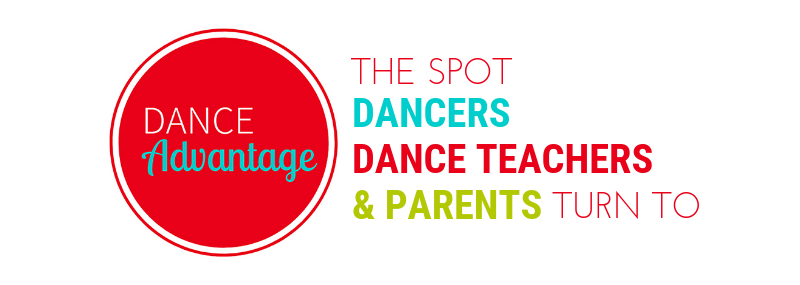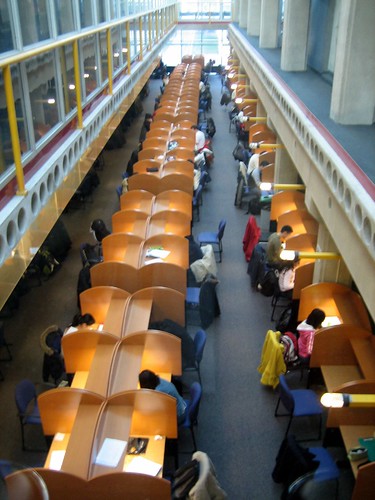This is the third installment in my Tips for College series. Please see Part I and Part II for more of my thoughts and advice on the college experience. This post will focus on academic classes both within and outside of a dance major, as well as general advice about life on campus.
Theory and Liberal Arts Classes
In addition to classes in which you further your education as a performer of dance (technique classes), as a dance major or minor, you will be required to expand your academic understanding of dance. This is done through theory classes like Dance History, Anatomy or Kinesiology, Music Theory for Dancers, Composition or Choreography, Teaching or Dance Pedagogy, etc. Some of these classes will provide hands-on learning similar to that of your technique classes and some may follow more traditional methods of study (i.e. attending lectures and studying texts). This area is where many promising students struggle, particularly if academics was not their strong suit in high school. I have found that dance faculty often have a more engaging approach than many professors within other realms or specialties, offering more opportunities to explore and discuss topics rather than just talking about them. However, in some subjects, a certain amount of memorization, reading, and writing is inevitable.
Classes outside of your major in a traditional liberal arts setting provide an opportunity for expanding your interests and knowledge as well. Some courses will be required because someone has decided that no college student should enter life without a basic understanding of say, algebraic equations or a second language. In other areas you may have quite a bit of choice as to what type of course you’d like to take to fulfill a particular requirement, so choose classes that truly interest you whenever possible. At some point in your college career, you may be one of the many nameless faces trying to stay awake in a lecture class auditorium or, if you are fortunate, you may be part of a lively discussion in a class of five. No matter what course you are taking and regardless of whether the class is in your major or not, here are some tips to keep in mind.
Tip #7: Develop a study and note-taking method that works for you. In a college setting there can be many additional distractions that you did not have at home so, even if you had a system in high school, you may find it needs some refinement. It is important to know yourself and be willing to experiment if what you’re doing isn’t working. If you know you need quiet in order to process information, for example, the library may be a better location for study than your dorm room. If discussion helps solidify concepts for you, join or create a study group. If highlighters, flashcards, or speaking out loud to yourself works – do what you need to, not what your friend does. Because in the end, while college is and should be a social experience, the “all play and no work” trap that many students fall into is a waste of money and a wasted opportunity to better oneself.
Tip #8: Be present in your classes. Join in when there is discussion, turn off your cell phone, sit up, and listen. You’ll be amazed at how much more you will absorb, lessening the amount of time you need to study or cram. There will be lots of other students sleeping, arriving late, skipping classes, complaining about the teacher’s thick accent while spending most of the class chatting with a friend in the back of the room, and in general making excuses for their poor performance. If you need help, ask for it from teachers or other students before you get really behind. If you hold yourself accountable for your education, you will have no need for excuses.
Tip #9: Embrace learning. You are fortunate to have the means and opportunity to be surrounded by knowledge, to have those who are specialists in their field around every corner, to be provided with resources and experiences that will serve you for years to come. This is a chance that comes pretty much just once during a typical lifetime. Don’t squander an opportunity of which so many around the world can only dream.
Tip #10: Take care of your instrument. It’s easy to stay up late for a variety of reasons and your body will adjust to less and less amounts of sleep. However, you will not be at your best without a decent amount of recuperation, particularly in very physical endeavors such as dance. Be kind to yourself and sleep. If you can sneak in naps, do it – just try not to oversleep and miss your next class! In addition, eat well and nutritiously. And, although it’s not my place to tell you to stay away from drugs, alcohol, or smoking, I do want to encourage you to be careful not to find yourself regularly abusing these substances. It will take a toll on your physical and mental performance so make wise choices in how you spend your “recreational” time at college so that you can be at your best.
I hope these tips have been helpful and will make your life as a dancer in a college setting a little easier.
Trying to decide on a college or determine if pursuing dance at a university is right for you? Check out this article.
Nichelle Suzanne is a writer specializing in dance and online content. She is also a dance instructor with over 20 years experience teaching in dance studios, community programs, and colleges. She began Dance Advantage in 2008, equipped with a passion for movement education and an intuitive sense that a blog could bring dancers together. As a Houston-based dance writer, Nichelle covers dance performance for Dance Source Houston, Arts+Culture Texas, and other publications. She is a leader in social media within the dance community and has presented on blogging for dance organizations, including Dance/USA. Nichelle provides web consulting and writing services for dancers, dance schools and studios, and those beyond the dance world. Read Nichelle’s posts.


